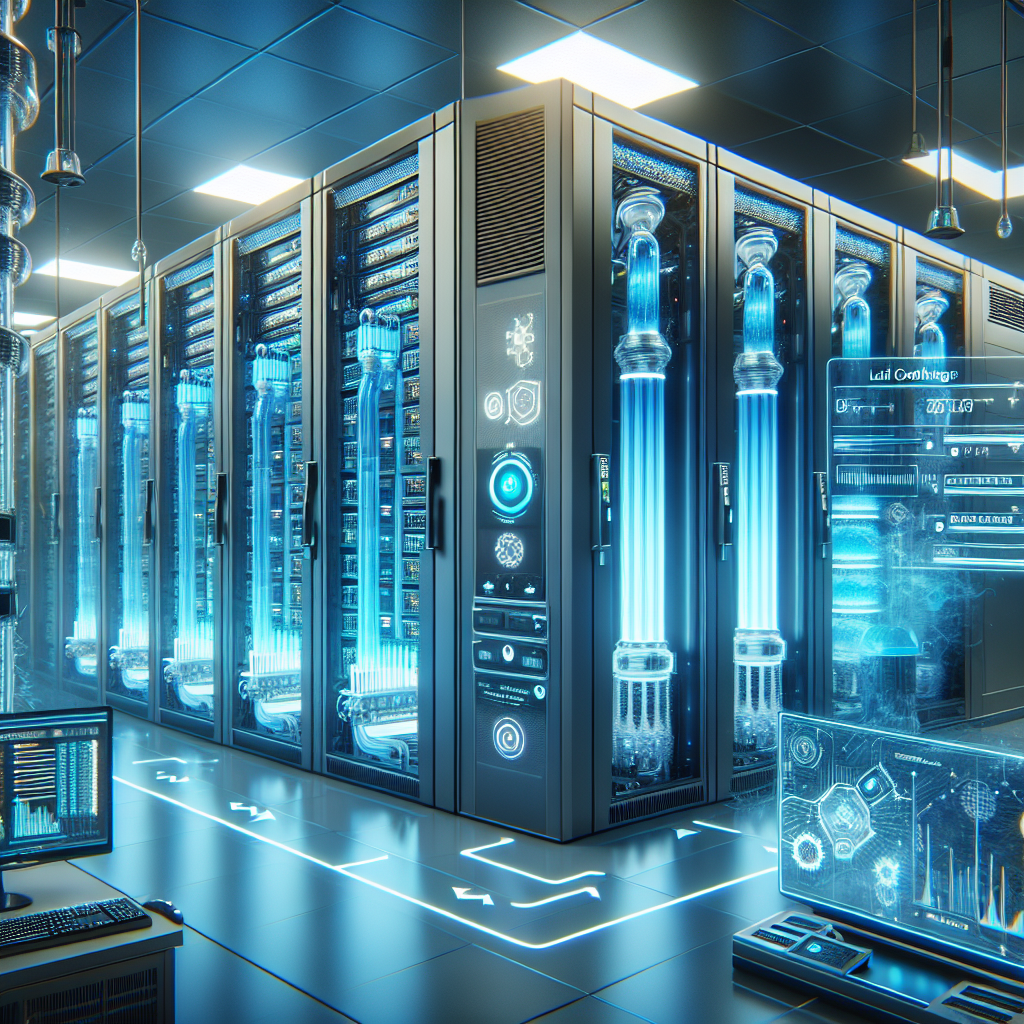Your cart is currently empty!
The Future of Data Center Cooling: Trends and Technology

Data centers are an essential part of the modern digital world, housing the servers and equipment that power our online activities. However, they also generate a significant amount of heat, which can be a major challenge for data center operators. In order to keep their equipment running smoothly and avoid costly downtime, data centers require effective cooling systems to maintain optimal operating temperatures.
In recent years, there have been significant advancements in data center cooling technology, driven by the increasing demand for more efficient and sustainable solutions. As data centers continue to grow in size and complexity, the need for innovative cooling solutions becomes even more pressing. Here are some of the key trends and technologies shaping the future of data center cooling:
1. Liquid cooling: Liquid cooling technology is becoming increasingly popular in data centers as a more efficient alternative to traditional air cooling systems. By using liquid coolant to remove heat from servers and other equipment, data centers can achieve higher levels of energy efficiency and cooling capacity. Liquid cooling solutions can also help reduce the overall carbon footprint of data centers, making them a more sustainable option for cooling.
2. Direct-to-chip cooling: Direct-to-chip cooling systems are designed to cool individual server components, such as CPUs and GPUs, directly at the source. This approach can significantly improve cooling efficiency and reduce the overall energy consumption of data centers. By targeting heat at the source, direct-to-chip cooling systems can also help extend the lifespan of server components and improve overall performance.
3. Intelligent cooling systems: The use of artificial intelligence and machine learning algorithms in data center cooling systems is another key trend shaping the future of cooling technology. These intelligent systems can analyze real-time data on server temperatures, workload levels, and environmental conditions to optimize cooling performance and energy efficiency. By using predictive analytics, data centers can anticipate cooling needs and adjust their systems accordingly, reducing energy waste and improving overall reliability.
4. Free cooling: Free cooling technology harnesses natural sources of cold air, such as outside air or groundwater, to cool data center equipment. By using these natural cooling sources instead of mechanical refrigeration systems, data centers can significantly reduce their energy consumption and operating costs. Free cooling solutions are particularly effective in regions with cooler climates, where ambient temperatures are low enough to support efficient cooling without the need for additional energy input.
5. Modular cooling solutions: Modular cooling systems are designed to be easily scalable and adaptable to the changing needs of data centers. By using modular components that can be added or removed as needed, data center operators can optimize their cooling systems for maximum efficiency and flexibility. Modular cooling solutions also help reduce downtime and maintenance costs by allowing for quick and easy upgrades or repairs.
In conclusion, the future of data center cooling is evolving rapidly, driven by the need for more efficient, sustainable, and reliable cooling solutions. By embracing innovative technologies such as liquid cooling, direct-to-chip cooling, intelligent systems, free cooling, and modular solutions, data centers can enhance their performance, reduce their environmental impact, and ensure the continued growth and success of the digital economy.As data centers continue to evolve and expand, it is crucial for operators to stay ahead of the curve by investing in cutting-edge cooling technologies that can meet the demands of today’s data-driven world. By embracing these trends and technologies, data center operators can ensure that their facilities remain efficient, reliable, and sustainable for years to come.

Leave a Reply